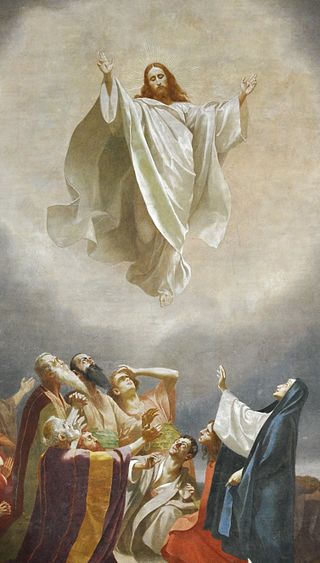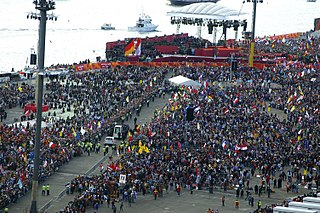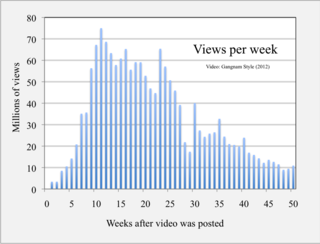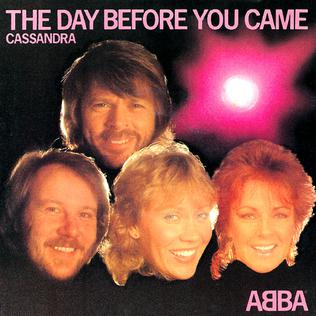The Day Before was a video game released in 2023.
The Day Before may also refer to:
- The Day Before (EP), by Snob Scrilla
- "The Day Before" (Jericho), an episode of the TV series
The Day Before was a video game released in 2023.
The Day Before may also refer to:

Doris Day was an American actress and singer. She began her career as a big band singer in 1939, achieving commercial success in 1945 with two No. 1 recordings, "Sentimental Journey" and "My Dreams Are Getting Better All the Time" with Les Brown and His Band of Renown. She left Brown to embark on a solo career and recorded more than 650 songs from 1947 to 1967.

The Hijri calendar, also known in English as the Muslim calendar and Islamic calendar, is a lunar calendar consisting of 12 lunar months in a year of 354 or 355 days. It is used to determine the proper days of Islamic holidays and rituals, such as the annual fasting and the annual season for the great pilgrimage. In almost all countries where the predominant religion is Islam, the civil calendar is the Gregorian calendar, with Syriac month-names used in the Levant and Mesopotamia but the religious calendar is the Hijri one.
A leap year is a calendar year that contains an additional day compared to a common year. The 366th day is added to keep the calendar year synchronized with the astronomical year or seasonal year. Because astronomical events and seasons do not repeat in a whole number of days, calendars that have a constant number of days in each year will unavoidably drift over time with respect to the event that the year is supposed to track, such as seasons. By inserting ("intercalating") an additional day, a leap day, or month, a leap month, into some years, the drift between a civilization's dating system and the physical properties of the Solar System can be corrected.

Green Day is an American rock band formed in the East Bay of California in 1987 by lead vocalist and guitarist Billie Joe Armstrong, together with bassist and backing vocalist Mike Dirnt. For most of the band's career they have been a power trio with drummer Tré Cool, who replaced John Kiffmeyer in 1990 before the recording of the band's second studio album, Kerplunk (1991). Before taking its current name in 1989, Green Day was called Blood Rage, then Sweet Children. They were part of the late 1980s/early 1990s Bay Area punk scene that emerged from the 924 Gilman Street club in Berkeley, California. The band's early releases were with the independent record label Lookout! Records. In 1994, their major-label debut Dookie, released through Reprise Records, became a breakout success and eventually shipped over 10 million copies in the U.S. Alongside fellow California punk bands Bad Religion, the Offspring, Rancid, NOFX, Pennywise and Social Distortion, Green Day is credited with popularizing mainstream interest in punk rock in the U.S.
Mayan most commonly refers to:

Billie Joe Armstrong is an American musician who is the lead vocalist, guitarist, and primary songwriter of the rock band Green Day, which he co-founded with Mike Dirnt in 1987. He is also a guitarist and vocalist for the punk rock band Pinhead Gunpowder, and provides lead vocals for Green Day's side projects Foxboro Hot Tubs, the Network, the Longshot and the Coverups. Armstrong has been considered by critics as one of the greatest punk rock guitarists of all time.

Vishu is a Hindu festival celebrating the Malayali New Year in Kerala, Tulu Nadu, and Mahe of India. Vishu falls on the first day of the month of Medam in the Malayalam Calendar. It is the traditional new year, while the Kollam era calendar new year falls on the 1st Chingham.

LinkedIn is a business and employment-focused social media platform that works through websites and mobile apps. It was launched on May 5, 2003. Since December 2016, it has been a wholly owned subsidiary of Microsoft. The platform is primarily used for professional networking and career development, and allows jobseekers to post their CVs and employers to post jobs. From 2015 most of the company's revenue came from selling access to information about its members to recruiters and sales professionals. LinkedIn has more than 970 million registered members from over 200 countries and territories.

The Fajr prayer is one of the five mandatory salah, to be performed anytime starting from the moment of dawn, but not after sunrise. The Isha prayer, which is the daily prayer directly before the Fajr prayer, usually does not take place after midnight.

The Feast of the Ascension of Jesus Christ commemorates the Christian belief of the bodily Ascension of Jesus into Heaven. It is one of the ecumenical feasts of Christian churches, ranking with the feasts of the Passion and Pentecost. Following the account of Acts 1:3 that the risen Jesus appeared for 40 days prior to his Ascension, Ascension Day is traditionally celebrated on a Thursday, the fortieth day of Easter, although some Christian denominations have moved the observance to the following Sunday, sometimes called Ascension Sunday. The day of observance varies by ecclesiastical province in many Christian denominations, as with Methodists and Catholics, for example.

World Youth Day 2008 was a Catholic youth festival that started on 15 July and continued until 20 July 2008 in Sydney, Australia. It was the first World Youth Day held in Australia and the first World Youth Day in Oceania. This meeting was decided by Pope Benedict XVI, during the Cologne World Youth Day of 2005. The theme was "You will receive power when the Holy Spirit comes upon you".

YouTube is an American online video sharing and social media platform owned by Google. Accessible worldwide, it was launched on February 14, 2005, by Steve Chen, Chad Hurley, and Jawed Karim, three former employees of PayPal. Headquartered in San Bruno, California, United States, it is the second most visited website in the world, after Google Search. YouTube has more than 2.5 billion monthly users, who collectively watch more than one billion hours of videos every day. As of May 2019, videos were being uploaded to the platform at a rate of more than 500 hours of content per minute.

The Google logo appears in numerous settings to identify the search engine company. Google has used several logos over its history, with the first logo created by Sergey Brin using GIMP. A revised logo debuted on September 1, 2015. The previous logo, with slight modifications between 1999 and 2013, was designed by Ruth Kedar, with a wordmark based on the Catull font, an old style serif typeface designed by Gustav Jaeger for the Berthold Type Foundry in 1982.

A viral video is a video that becomes popular through a viral process of Internet sharing, typically through video sharing websites such as YouTube as well as social media and email. For a video to be shareable or spreadable, it must focus on the social logics and cultural practices that have enabled and popularized these new platforms.

"The Day Before You Came" is a song recorded by Swedish pop group ABBA, released in October 1982 as the lead single from the compilation album The Singles: The First Ten Years.

Rickrolling or a Rickroll is an Internet meme involving the unexpected appearance of the music video to the 1987 hit song "Never Gonna Give You Up", performed by English singer Rick Astley. The aforementioned video has over 1.5 billion views on YouTube. The meme is a type of bait and switch, usually using a disguised hyperlink that leads to the music video. When one clicks on a seemingly unrelated link, the site with the music video loads instead of what was expected, and they have been "Rickrolled". The meme has also extended to using the song's lyrics, or singing it, in unexpected contexts. Astley himself has also been Rickrolled on several occasions.

YouTube is an American online video-sharing platform headquartered in San Bruno, California, founded by three former PayPal employees—Chad Hurley, Steve Chen, and Jawed Karim– in February 2005. Google bought the site in November 2006 for US$1.65 billion, since which it operates as one of Google's subsidiaries.
The following is a list of timeline articles:
NFL lockout may refer to any of the lockouts or strikes in the history of the National Football League:

A sign-on is the beginning of operations for a radio or television station, generally at the start of each day. It is the opposite of a sign-off, which is the sequence of operations involved when a radio or television station shuts down its transmitters and goes off the air for a predetermined period; generally, this occurs during the overnight hours although a broadcaster's digital specialty or sub-channels may sign-on and sign-off at significantly different times as its main channels.